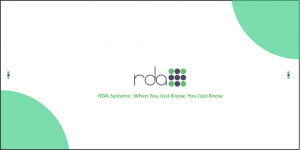Excerpts from Robert E. Davis’s Book
“Fund Accounting Policies”
PURPOSE OF ACCOUNTING
Keeping records is one of the most important functions in the day-by-day operation and administration of an organization. Without adequate records, decisions would have to be based on memory and guesswork. Records summarizing financial transactions and other activities of an organization facilitate wise and informed decisions. Persons who systematically record information about the various financial activities of an organization provide a basic and indispensable service.
Systematic and well-kept records are also invaluable to the persons responsible for keeping them. Systematic records summarize and bring into orderly arrangement the numerous and relatively unpredictable details of daily financial operations. When records are kept in an orderly manner, it is possible to trace information on individual transactions back to supporting source documents and to prepare reliable accurate and timely financial reports. An effective audit trail is left for independent auditors, resulting in improved quality and decreased costs.
GENERALLY ACCEPTED ACCOUNTING PRINCIPLES
Accounting has been defined as the art of recording, classifying, summarizing, reporting, and interpreting the results of financial activities. Governmental accounting should conform to generally accepted accounting principles (GAAP) which are uniform minimum standards of accounting and financial reporting.
COMMERCIAL vs. GOVERNMENTAL ACCOUNTING
In our free enterprise system, business organizations are permitted significant discretion in choosing how to spend their resources. Further, since business organizations exist primarily to earn profits, accounting standards governing their behavior place minimal emphasis on spending activities and focus almost exclusively on the extent to which operations have maintained or added to net worth or equity. Americans taxpayers, on the other hand, are not nearly so inclined to allow their governments similar discretion in deciding how to spend public funds. Further, earning a profit is at best a secondary objective even for governments with profit-producing activities. Americans have not, therefore, found business accounting standards particularly useful for evaluating their governments’ financial activities and have turned instead to an accounting system which emphasizes the control of spending. This is done through the establishment of budgets and the preparation of reports which show the extent of compliance with the budget. The legal authority to spend in a governmental organization is the approved budget, or appropriation.
FUND ACCOUNTING BASICS
Organizations that receive revenue through public and private sources of funding use the system of fund accountancy rather than traditional business methods of accounting. Fund accounting
refers to the management and allocation of revenue an organization acquires through donations, tax payments, grants and other public and private sources. The basic idea behind fund accounting is to monitor and document the use of assets that are acquired from outside parties.
Often, different functions of a governmental activity require different kinds of controls. To accommodate this need, individual funds are established to account separately for resources affected by different types of spending restrictions. Separate funds are needed when unique reporting requirements exist. This process is referred to as fund accounting. Fund accounting allows a government to account for part of its activities using business accounting standards and the rest using governmental accounting standards. Since governmental fund financial statements are concerned with spending and available spendable resources (rather than with a determination of net income), they are accounted for using the modified accrual basis of accounting and adapted to focus on spending rather than on net profits. Thus, revenues are accrued when they are “available”, and classified as expenditures when the liability is incurred.
Three typical categories of funds are used:
- Governmental funds
- Proprietary funds
- Fiduciary funds
Governmental Funds: Governmental funds are used to account for governmental activities financed primarily from taxes and state appropriations. “They are accounted for using governmental accounting standards. Therefore, they generally report only current assets and current liabilities on their balance sheets and their primary operating statement is the statement of revenues and expenditures. Their equity consists of the accounts called fund balance and reserves.
Proprietary Funds: Proprietary funds are used to account for operations that are financed and operated in a manner similar to private business enterprises and/or where the intent is that they be financed primarily from user charges. They are accounted for using business standards. Therefore, their primary operating statement is the statement of revenues, expenses, and their equity consists of separate invested monies (called contributed capital) and earned monies (called retained earnings).
Fiduciary Funds: Fiduciary funds are used to account for activities undertaken by a government on behalf of, or in a fiduciary capacity for, some other persons or groups. Fiduciary funds are accounted for as either proprietary or governmental, depending on the nature of the responsibilities of the government (the fiduciary). Nonexpendable trust and pension trust funds are treated like governmental funds. Agency funds are purely custodial (assets exactly equal liabilities and, hence, equity is always zero) and thus do not involve measurement of results of operations.
BUDGET AND APPROPRIATION DISTINGUISHED
The terms budget and appropriation often are confused when considering expenditures. The term budget refers to the dollar amount established as an estimate or target for expenditures for a particular program or activity. An appropriation is the legal limit established by a board or other governing organization on the amount of expenditures which can be made in that particular category. A budget can be exceeded. Legally, an appropriation cannot be exceeded. Hence, for a budget which has been appropriated, changes usually must be authorized by the board to
accommodate unanticipated overages in particular budget categories. The more detailed the appropriation, the more likely is the need for changes during the year.
CONTENT SOURCE: This document contains content from selected Chapters of a manuscript developed by RDA Systems, Inc. for the National Center for Educational Statistics. Robert E. Davis was the Principal Investigator and Paul Glick served as Project Director for RDA Systems, Inc. during the initial development effort. Subsequent changes and modifications presented in this book were made by Robert E. Davis, President, RDA Systems, Inc.
RDA Systems started as a nationally recognized consulting practice that assisted and trained schools and governments to accurately manage their finances. RDA played a key role in developing and establishing best practice standards in Fund Accounting that are still in practice in half of the United States. The founder, Robert E. Davis, used that experience to publish a well-read book on Accounting Practices that became the foundation of our comprehensive suite of Fund Accounting software for schools and local governments. Today, their software has diligently been kept current and evolved into a comprehensive unified platform comprised of modern, fully integrated, and opensource-based software that expertly supports your administrative operations and constituent services. The software operates in the Google Cloud for secure, compliant, scalable, and dependable managed services.





